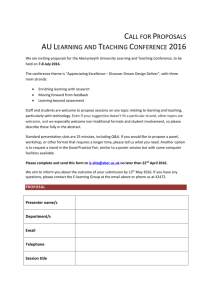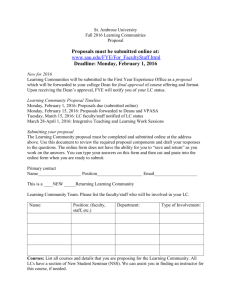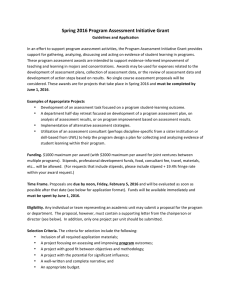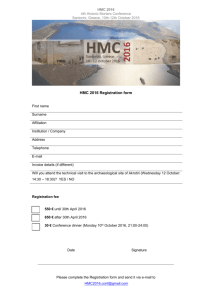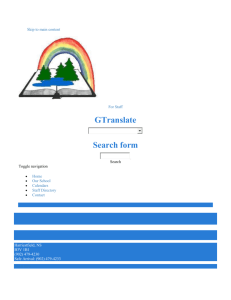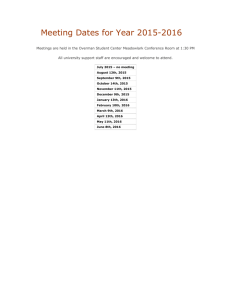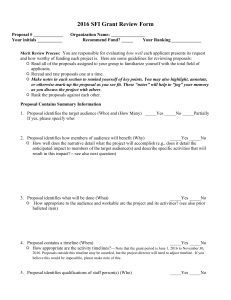CFP-Oral_History-Jerusalem_Dec2016
advertisement
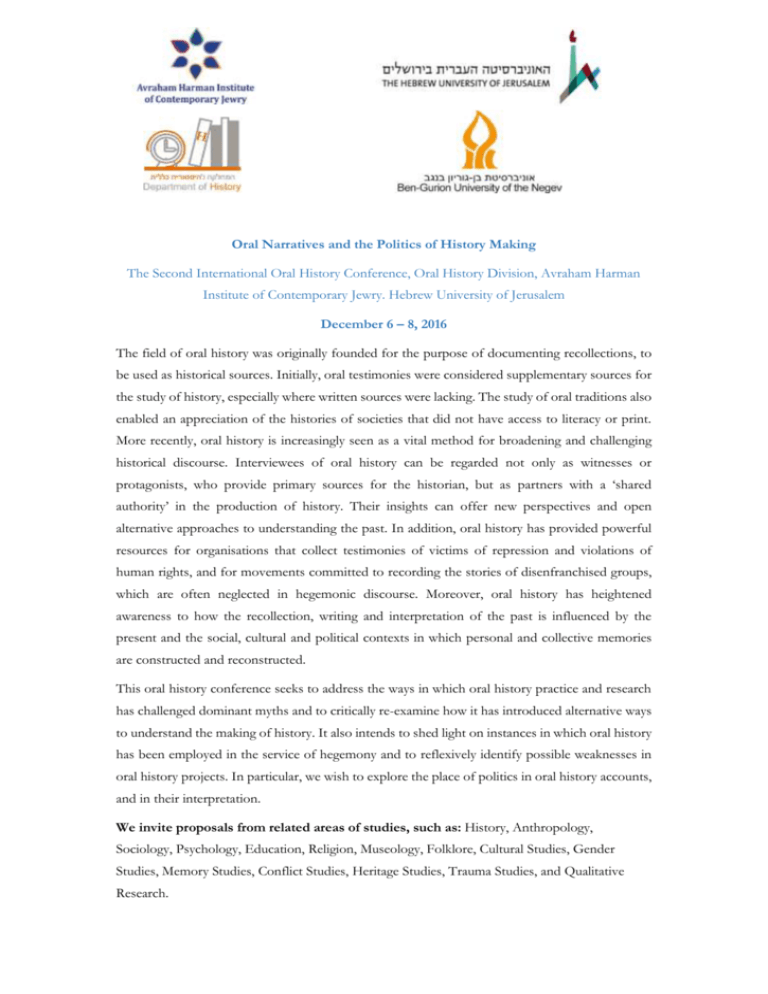
Oral Narratives and the Politics of History Making The Second International Oral History Conference, Oral History Division, Avraham Harman Institute of Contemporary Jewry. Hebrew University of Jerusalem December 6 – 8, 2016 The field of oral history was originally founded for the purpose of documenting recollections, to be used as historical sources. Initially, oral testimonies were considered supplementary sources for the study of history, especially where written sources were lacking. The study of oral traditions also enabled an appreciation of the histories of societies that did not have access to literacy or print. More recently, oral history is increasingly seen as a vital method for broadening and challenging historical discourse. Interviewees of oral history can be regarded not only as witnesses or protagonists, who provide primary sources for the historian, but as partners with a ‘shared authority’ in the production of history. Their insights can offer new perspectives and open alternative approaches to understanding the past. In addition, oral history has provided powerful resources for organisations that collect testimonies of victims of repression and violations of human rights, and for movements committed to recording the stories of disenfranchised groups, which are often neglected in hegemonic discourse. Moreover, oral history has heightened awareness to how the recollection, writing and interpretation of the past is influenced by the present and the social, cultural and political contexts in which personal and collective memories are constructed and reconstructed. This oral history conference seeks to address the ways in which oral history practice and research has challenged dominant myths and to critically re-examine how it has introduced alternative ways to understand the making of history. It also intends to shed light on instances in which oral history has been employed in the service of hegemony and to reflexively identify possible weaknesses in oral history projects. In particular, we wish to explore the place of politics in oral history accounts, and in their interpretation. We invite proposals from related areas of studies, such as: History, Anthropology, Sociology, Psychology, Education, Religion, Museology, Folklore, Cultural Studies, Gender Studies, Memory Studies, Conflict Studies, Heritage Studies, Trauma Studies, and Qualitative Research. Conference Registration fee: $120 Please send proposals of 350-500 words and a short biography to the academic committee by March 15, 2016 Oralhistory2016@gmail.com Notification of acceptance will be given by July 1, 2016.
